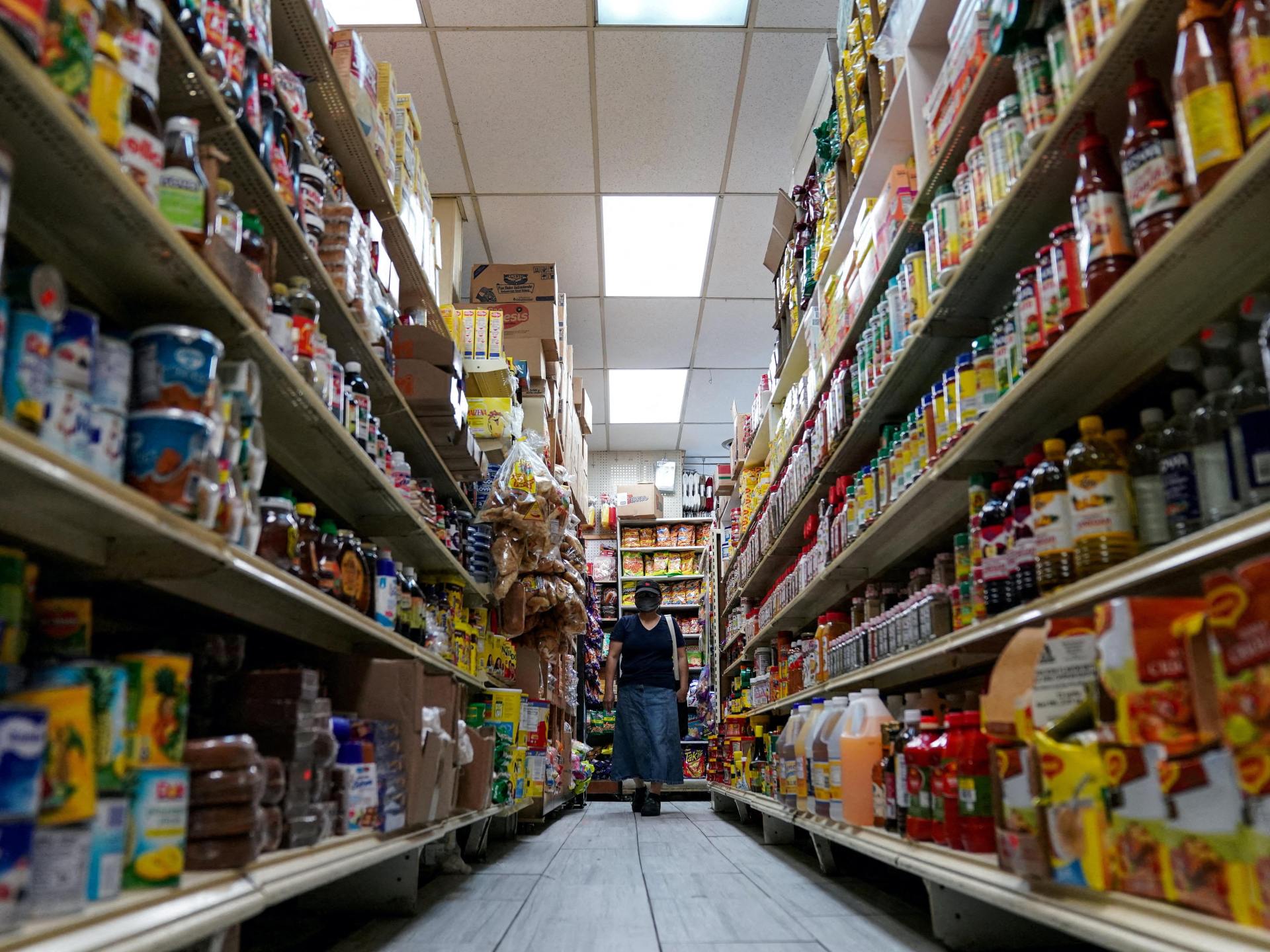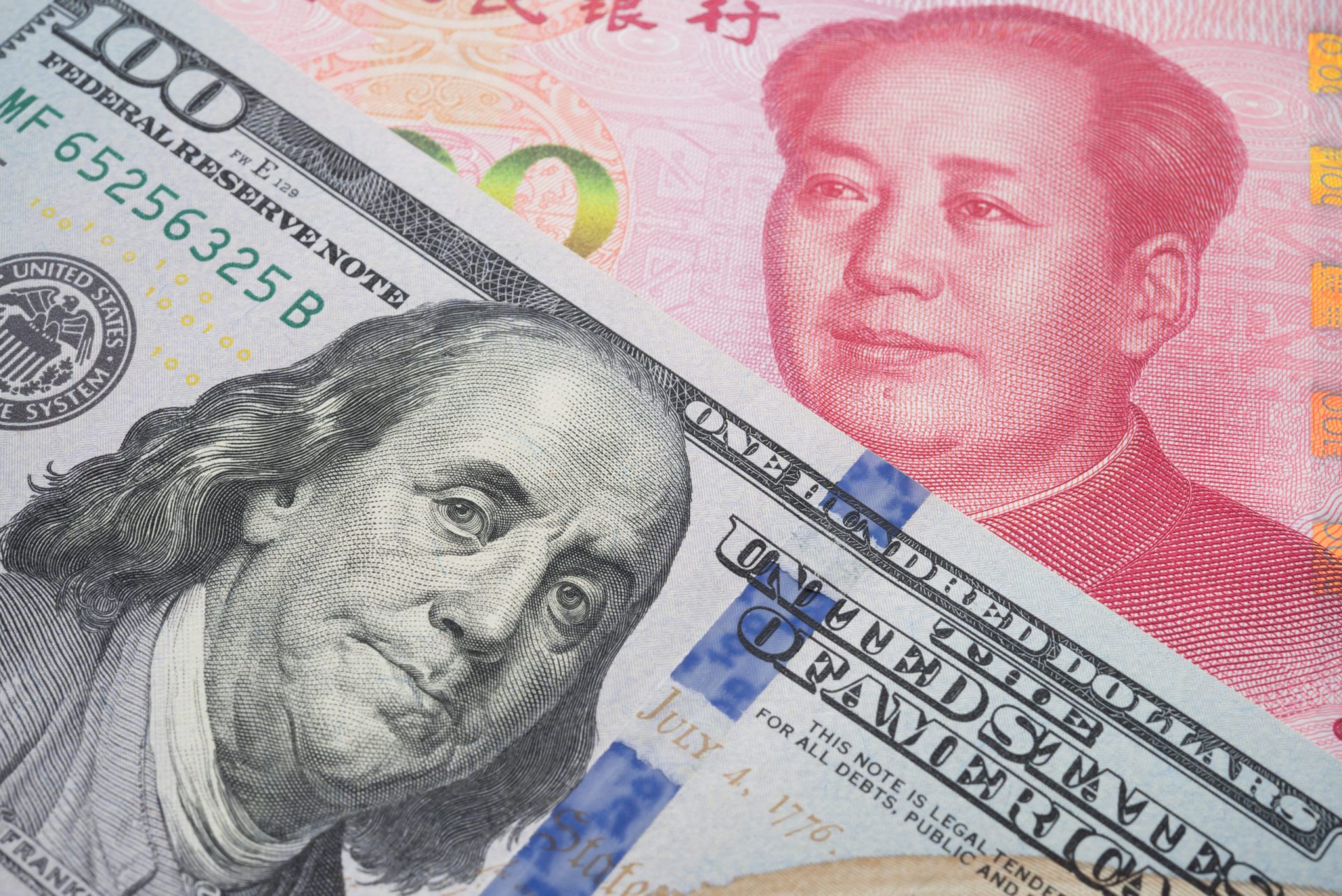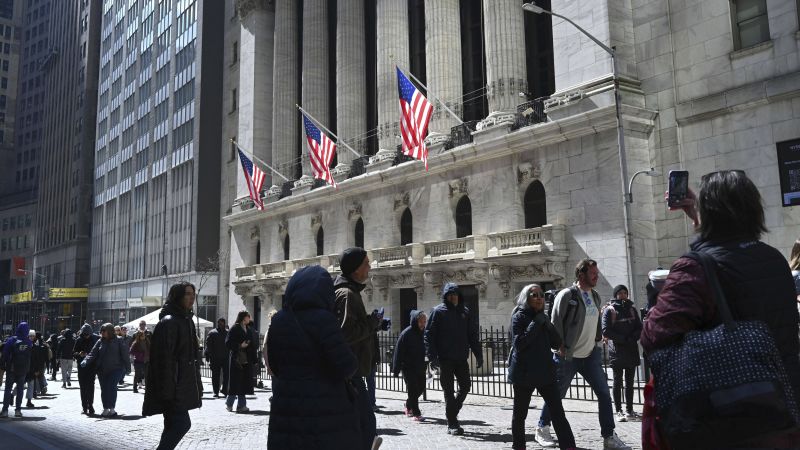Rep. James Clyburn (D-SC) claimed on MSNBC that inflation is down and people's incomes are up under the Biden administration, but moments later it was reported that inflation had risen more than expected in the last month, highlighting the disconnect between Clyburn's claims and the reality of the situation.

Seniors may see a higher Social Security check in 2025 due to a predicted 3% cost of living adjustment (COLA), but experts warn that it may not be enough to fully protect their purchasing power as healthcare and housing costs continue to rise.

The US economy is sending mixed signals about when the next recession will arrive, with some indicators suggesting early-cycle expansion and others pointing to an imminent recession, prompting the Federal Reserve to be flexible with its interest rate decisions and downplay the significance of a rate cut.
Investors are starting to question whether the US Federal Reserve may need to consider raising interest rates due to stubborn inflation, despite the previous focus being on rate cuts.

The growing concern over U.S. inflation and a strong labor market is causing Federal Reserve officials to signal that there is no immediate need to cut interest rates, pushing back expectations for policy easing.

Democratic congressman James Clyburn attempted to defend President Biden's record on inflation by claiming that inflation rates have decreased since Biden took office, but his argument was undermined when news broke that inflation had actually risen faster than expected, highlighting the concerns expressed by a recent focus group accusing the president of "gaslighting" them on the economy.

IMF Chief Kristalina Georgieva expresses concern over higher U.S. interest rates, stating that they are not favorable for the rest of the world and could potentially pose a threat to financial stability if they persist, while acknowledging the prudence of the U.S. Federal Reserve's actions.

Fox News offers live streaming of their shows and full episodes, allowing viewers to reduce eye strain and focus on the content that matters.

The average long-term U.S. mortgage rate rose to its highest level in five weeks, reaching 6.88% for a 30-year mortgage, due to stronger economic data and higher Treasury yields, which could limit affordability for homebuyers.

The United States' "disappointing" inflation data for March, which exceeded expectations, raises concerns that inflation will remain high and dampens expectations of an interest rate cut, impacting both the Federal Reserve and the upcoming presidential election.

Mortgage rates increased slightly and are unlikely to significantly drop in the near future, as the Federal Reserve is waiting for inflation to approach its target before lowering the federal funds rate. The current inflation rate is higher than expected, indicating that rates are likely to remain higher. Factors such as the economy and housing market also impact mortgage rates, and borrowers can control their rates by comparing lenders and improving credit scores and down payments. Fixed-rate mortgages, both 30-year and 15-year, have their own advantages and disadvantages in terms of monthly payments and interest paid over time.
China's economy is facing a crisis due to problems in the property market, resulting in negative credit ratings and potential global turbulence, with implications for the US economy and the upcoming presidential elections.

The Federal Reserve's possible cuts to inflation rates are being debated as recent inflation data suggests that the target of 2% may no longer be appropriate in a world characterized by reglobalization and structural inflationary trends.
The BRICS bloc's push for de-dollarization and its growing influence in trade and investment pose a threat to the US, particularly in terms of its national debt, as the bloc's expansion and interest from current US dollar-reliant nations will hamper the US' struggles with debt.

Mortgage rates in the US have risen again, suggesting that the country's affordability crisis is continuing, with rates expected to increase further if inflation is higher than anticipated.

The high import costs of goods including crops, oil, and metals are contributing to the strain of sky-high prices for American consumers.

The European Central Bank has signaled its intention to potentially cut interest rates at its next meeting in June, as it assesses the impact of declining inflation on credit costs for businesses and consumers. This announcement marks the first official acknowledgment of rate cuts by the ECB.

Producer prices rose less than expected in March, providing relief to analysts and suggesting that underlying inflation may be easing. The Labor Department's producer price index increased by 0.2%, below the anticipated 0.3% increase, indicating a potential slowdown in inflation.

Inflation in the US is rising again, with headline price growth reaching 3.5% in March and remaining well above the Federal Reserve's target, as predicted by Michael Burry, the investor known for his accurate forecasts and bet against the US housing bubble.
California could potentially lose its position as the world's fifth-largest economy to India in 2024, due to India's projected economic growth, although California would still remain ahead of the United Kingdom and France in terms of GDP.

Tokyo has become a more affordable destination compared to New York City, with lower prices for accommodations, food, and attractions, making it an attractive option for travelers.

Fox Business Channel is currently airing The Big Money Show, Making Money with Charles Payne, and The Claman Countdown, while Fox News Channel is showing America Reports, The Story, and America Reports, and Fox News Radio is providing live coverage with author Adam B. Coleman discussing how Black Americans can overcome a victim mindset, all available to watch live.

Several European countries are expected to fall short of their 2030 policy targets for wind and solar capacity due to a deficit in grid capacity, which may hinder the achievement of energy policy targets and the transition to renewable energy.

U.S. producer prices rose at the fastest pace in nearly a year in March, but the gain was less than expected, easing concerns about inflation and potentially delaying rate cuts by the Federal Reserve.

The U.S. Treasury official is urging coordinated action by creditors to address the worsening financial challenges faced by low- and middle-income countries and to expedite debt relief, amid growing frustration with China's slow response to debt restructuring efforts.

The iconic pimento cheese sandwich is a must-have at Augusta National during the Masters tournament, with patrons enjoying the unique taste and affordable price of $5 for a sandwich, chips, and a soft drink. Despite price increases in some items like beer, the overall menu prices have remained fixed for years, and cell phones are still not allowed on the course, providing a nostalgic escape from constant connectivity.
Wholesale inflation continues to rise in March, indicating persistent high prices that are difficult to control and putting financial pressure on American households, particularly low-income individuals. Both the producer price index and core prices increased, pointing to inflation levels above the Federal Reserve's target. The data comes as the Fed closely monitors inflation to determine future interest rate decisions.

U.S. producer prices rose at the fastest pace in nearly a year in March, but the increase was lower than expected, with wholesale inflation easing on a month-to-month basis, leading to doubts about when the Federal Reserve will cut interest rates.

The number of Americans filing new claims for unemployment benefits fell more than expected, indicating a tight labor market despite some workers taking longer to find new jobs.

Lower-income individuals often spend money on high-fee checking accounts, taxis and ride-shares, pawn shops and thrift stores, interest and cash advance fees, rent-to-own stores, processed foods, grocery delivery services, housing costs, and insurance coverage, which the rich and middle class don't typically have to budget for.

The U.S. economy is facing unexpected challenges as inflation remains high despite a booming job market and strong stock market, leading to uncertainty and confusion among economists and Federal Reserve officials about how to address the situation.

Corporate monopolies and price gouging are contributing to high prices and record profits for large corporations, while average Americans struggle, necessitating aggressive antitrust enforcement and legislation to prevent excessive pricing.

The high costs of living and inflation in the United States are causing financial strain for many Americans, particularly low-income individuals, leading to a struggle to afford basic necessities.

The top 10 cities in the US with the highest rates of inflation, including Honolulu, Miami, and San Bernadino, are struggling with rising costs due to factors such as disrupted supply chains, the war in Ukraine, and increased demand coupled with reduced supply, according to analysis by WalletHub.

The text provides a schedule of various shows airing on Fox Business Channel, Fox News Channel, and Fox News Radio.

US inflation at the wholesale level rose to its highest level since April 2023, highlighting persistent price pressures and supporting fears of prolonged higher interest rates.

U.S. stocks drift as concerns over high interest rates persist, with the S&P 500 dropping 0.3% and the Dow Jones Industrial Average down 0.6%, while the Nasdaq composite climbs 0.1%; Treasury yields remain mixed, exerting pressure on the stock market.
Food inflation in the US remains high, with grocery prices rising 21% in the last three years, outpacing the overall inflation rate and causing financial strain on American households. Many families are still feeling the effects of inflation, with increased expenses for everyday necessities like food and rent. Low-income Americans are particularly affected by the rising prices.

Investors are eagerly awaiting first-quarter earnings reports from big banks, including JPMorgan Chase, BlackRock, Citigroup, Wells Fargo, and PNC Financial Services, in order to gauge the strength of the stock market rally amidst concerns of inflation and rising interest rates.

President Joe Biden is facing a challenging situation as inflation in the US reaches the highest level in six months, with prices up 3.5% for the year in March, impacting people's perception of the economy despite positive economic data and Biden's efforts to tackle rising costs.

Florida currently has the highest inflation rate in the US, reaching 3.9% last month, driven by climbing housing and insurance costs, causing concern for residents and Republican Governor Ron DeSantis.

The lower middle class is facing significant challenges in affording homeownership, new cars, restaurant food, rent in major cities, and vacation travel due to rising costs of living, stagnant wages, and high interest rates. These changes reflect broader economic shifts that impact the quality of life and societal norms, highlighting the need for monetary reform to restore accessibility and balance.

US dollar store chains, Family Dollar and 99 Cents Only, are facing closures and bankruptcy due to inflation, shoplifting, strategic mistakes, and underinvestment by their new owners, Dollar Tree and private equity firms, respectively.

Rising auto insurance rates are eroding the savings from declining car prices in the US, with insurance costs now accounting for more than a quarter of the total cost of owning a vehicle, due to factors such as rising repair costs and increased storm damage.

Gold prices recently hit a record high, surging by 15% since the start of March, and the demand for physical gold is being driven by central banks, big institutions, and private individuals or companies, such as those purchasing gold from Costco.

Former President Donald Trump, also known as "Tariff Man," wants to pursue a more aggressive trade strategy if he is reelected, which includes imposing tariffs on imports, particularly from China, raising concerns among economists that it may lead to a trade war, hurt the US economy, and potentially trigger a recession.

President Biden falsely claimed that inflation was skyrocketing when he took office in January 2021, despite federal data showing that it was recorded at just 1.4%, but has since surged to a 40-year high of 9.1%.

China's disappointing inflation levels highlight the need for swift policy easing to prevent deflation and stimulate economic growth, as the subdued consumer price index (CPI) growth of 0.1% in March falls short of expectations amid a property slump and sluggish job market.

Chinese authorities are concerned about industrial overcapacity and its impact on competition and factory utilization rates, which differs from the US and other countries' focus on overall capacity and production volume; China's excessive supply of green products is likely to persist, and tensions over trade issues are expected to increase.
Lynsi Snyder, the president of In-N-Out, has successfully kept menu prices low and profits up by resisting the pressure to raise prices in high-stakes meetings, despite inflation and the increase in minimum wage in California's fast food industry.
